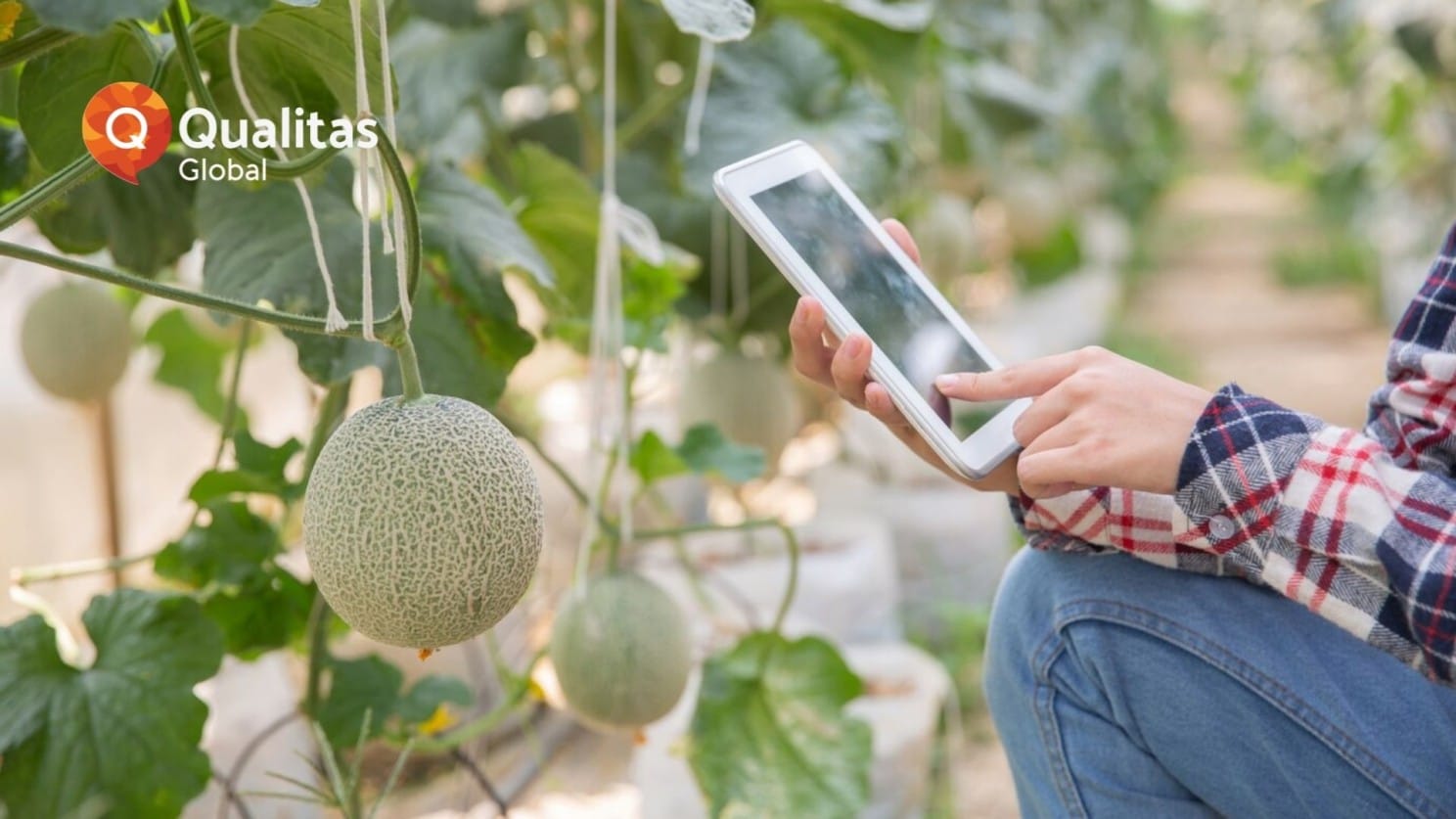Agriculture has always been a crucial part of human life. The AI revolution is making it even better. This article explores how Qualitas Global is helping by using data annotation to improve Agri-tech and changing modern farming, helping agri-tech companies grow more food.
Precision Farming Explained
Precision farming is a modern agricultural practice that uses technology to monitor and manage crops. By collecting and analyzing crop data, agri-tech companies can make better decisions about planting, watering, and harvesting. This approach helps to increase yields and reduce waste.
The Role of Data Annotation in Modern Agriculture
Data Annotation’s Role
Data annotation is crucial for training machine learning models. Annotated data helps these models understand and interpret agricultural data accurately.
Importance in Agri-tech
Agriculture annotation is vital for the advancement of agri-tech. It enables the creation of precise models that can predict crop yields, identify pests and optimize irrigation systems. Without accurate data annotation, these technologies would be less effective and reliable.
Impact on Crop Management
Annotated data significantly improves crop management by providing actionable insights. Agri-tech companies can make informed decisions about planting, watering and harvesting. This leads to better crop yields and more efficient use of resources. Qualitas Global excels in providing high-quality data annotation services, ensuring that agri-tech innovations are both efficient and accurate.
Benefits for Agri-tech companies
Annotated data provides several benefits for agri-tech companies, including:
- Improved crop monitoring: Agri-tech companies can keep a close eye on their crops and quickly identify any issues.
- Better decision-making: With accurate data, agri-tech companies can make informed decisions about their farming practices.
- Increased efficiency: By using technology, agri-tech companies can save time and resources.
Qualitas Global plays a crucial role in this process by providing high-quality data annotation services. Our team ensures that the data is accurate and reliable, helping agri-tech companies to achieve better results in their precision farming efforts.
Integrating AI and Machine Learning in Agritech
AI in Agriculture
Artificial Intelligence (AI) is transforming agriculture by enabling smarter and more efficient farming practices. From automated machinery to predictive analytics, AI helps agri-tech companies make better decisions. AI-driven tools can analyze vast amounts of data quickly, providing insights that were previously impossible to obtain.
Machine Learning Models
Machine learning models are at the heart of AI applications in agriculture. These models learn from data to make predictions or decisions without being explicitly programmed. For example, machine learning can predict crop yields, identify pests, and optimize irrigation schedules. The accuracy of these models depends on the quality of the data they are trained on.

Optimizing Yield Prediction Models
Yield Prediction in Agriculture
Yield prediction is a critical aspect of modern agriculture. It helps agri-tech companies estimate the amount of produce they can expect from their crops. This information is vital for planning, resource allocation, and market strategies. Accurate yield predictions can lead to better decision-making and increased profitability for agri-tech companies.
Data Annotation Techniques
Data annotation involves labelling data so that machines can understand it. In agri-tech, this can include:
- Drone video tracking: Using drones to capture images and videos of fields, which are then annotated to identify crop health and growth patterns.
- Robotic farming data analysis: Robots collect data from the fields, which is annotated to help in understanding soil conditions and crop needs.
- Land monitoring: Satellite images are annotated to track changes in land use and crop coverage.
- Yield Prediction: Identifying and annotating key factors affecting yield and reducing the margin of error in yield estimates by enhancing the accuracy of prediction models.
Smart Irrigation Systems and Data Annotation
Innovations in Irrigation
In recent years, smart irrigation systems have revolutionized the way we manage water resources in agriculture. These systems use advanced technologies to monitor soil moisture, weather conditions and crop needs, ensuring that water is used efficiently. By integrating data from various sources, agri-tech companies can optimize irrigation schedules, reduce water waste and improve crop yields.
Role of Annotated Data
Annotated data plays a crucial role in the effectiveness of smart irrigation systems. By accurately labelling and categorizing data from sensors, drones and satellite images, we can train machine learning models to make precise irrigation decisions.
Expertise in Agri-tech
Our expertise in agri-tech is unmatched. We offer a range of services, including image annotation and data labelling, tailored to meet the unique needs of the agricultural industry. By leveraging advanced technologies, we help agri-tech companies and agribusinesses make informed decisions. Our data annotation techniques are designed to enhance crop management, improve yield predictions, and optimize resource use.

Improving Pest and Disease Management
Challenges in Pest Management
Managing pests and diseases in agriculture have always been a constant battle. Agri-tech companies face numerous challenges, from identifying the pests to applying the right treatments. Additionally, the unpredictable nature of pest outbreaks makes it difficult to maintain consistent crop health.
Technological Advancements
The integration of advanced technologies has revolutionized pest and disease management. AI and machine learning models, powered by annotated data, can now predict outbreaks and suggest preventive measures. This not only saves time but also reduces the reliance on chemical treatments, promoting sustainable farming practices.
Data Annotation Solutions
Data annotation plays a vital role in addressing these challenges. By accurately labelling images and data, we can train AI models to recognize pests and diseases quickly. This helps in early detection and timely intervention. Our team at Qualitas Global excels in providing precise data annotation services, ensuring that the AI models are both efficient and reliable.
Sustainability and Environmental Impact
Sustainable Farming Practices
We all agree that we need to use methods that protect our environment while still producing enough food. This is where data annotation comes in. By using annotated data, agri-tech companies can make better decisions about how to use their land and resources. This helps reduce waste and increase efficiency. Qualitas Global provides top-notch data annotation services that help agri-tech companies adopt these sustainable practices.
Annotated Data for Environmental Monitoring
Monitoring the environment is crucial for sustainable farming. With annotated data, we can track changes in soil health, water quality, and weather patterns. This information helps agri-tech companies adjust their practices to be more eco-friendly.
Long-term Benefits
The long-term benefits of using annotated data in agriculture are significant. Agri-tech companies can improve their yields, reduce their environmental impact, and ensure the sustainability of their practices. By partnering with Qualitas Global, agri-tech gain access to precise data annotation services that support these long-term goals. This collaboration not only benefits the agri-tech companies but also contributes to a healthier planet for future generations.
Future Trends in Agritech and Data Annotation
Emerging Technologies
As we look ahead, the agritech industry is set to embrace a wave of emerging technologies. Drones and satellite imagery are becoming more common, providing real-time data that can be annotated for better insights. Blockchain technology is also making its way into agritech, ensuring transparency and traceability in the food supply chain.
Predicted Developments
In the near future, we anticipate several key developments in agritech data. First, the integration of IoT devices will become more widespread, allowing for continuous monitoring of soil health, weather conditions, and crop growth. Second, advancements in genetic engineering will lead to crops that are more resilient to climate change and pests. Third, the use of big data analytics will enable agri-tech companies to make more informed decisions, optimizing yield and reducing waste.

Challenges and Solutions in Data Annotation for Agritech
Common Challenges
In the realm of agritech, data annotation presents several challenges. One of the primary issues is the sheer volume of data generated by modern farming technologies. Handling this vast amount of data efficiently is crucial. Additionally, the diversity of data types, ranging from satellite images to sensor data as well as different kinds of plants and fruits complicates the annotation process. Another significant challenge is ensuring the accuracy and consistency of annotations, which is vital for the reliability of smart farming data solutions.
Innovative Solutions
To address these challenges, innovative solutions are essential. Automation plays a key role in managing large datasets. Machine learning algorithms can assist in pre-sorting and pre-annotating data, which human annotators can then refine. This hybrid approach enhances both speed and accuracy. Standardizing annotation protocols also helps in maintaining consistency across different datasets.
Conclusion
Qualitas Global is making a big difference in the world of farming with their data annotation services. We help turn simple soil data into smart technology that can change how we grow food. This means agri-tech companies can make better choices and grow more crops. As technology keeps getting better, the work that Qualitas Global does will become even more important. We are helping to build a future where farming is smarter and more efficient. This is good news for everyone, from agri-tech companies to people who buy food at the store.
